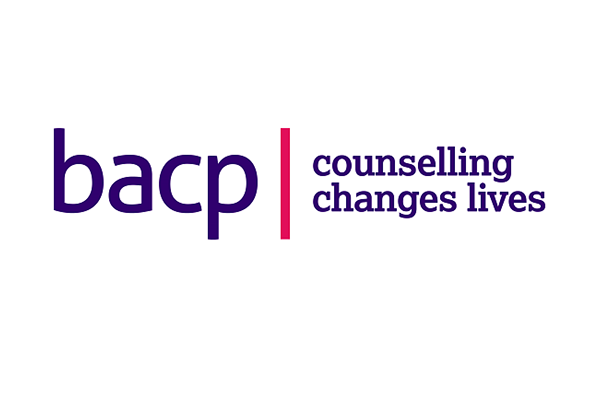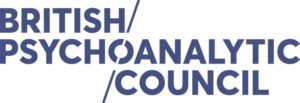Diploma in Psychodynamic Counselling & Therapy
The Diploma in Psychodynamic Counselling and Therapy in the Community is of interest to those who wish to practice as a counsellor. Graduates of the Diploma Course will be equipped with the clinical experience and theoretical knowledge to work in agencies in the private, public and voluntary sector and in private practice.
Diploma applications for 2024/25 are now being accepted.
Interviews taking place on Monday 8th July at 6:30pm.
All courses are being taught in person.
The Diploma Course is comprised of three modules each taking a year to complete. Module One is an Access Course which is an essential entry year to Modules Two and Three. Students have a choice to leave at the end of the Access Year or, if deemed ready to commence clinical work, can proceed on to Modules Two and Three. No clinical practice is undertaken by students in the Access Course (Module One).
MODULE ONE (ACCESS COURSE)
The year is comprised of three terms of ten weeks and maximum attendance is required. Personal therapy, seminar preparation and reading are additional to the core curriculum. Students are encouraged to focus on their own process in order to increase their understanding and awareness.
The Access Course is comprised of 225 contact hours which includes theory, skills, training, practice, supervision and personal development. Personal therapy is a requirement.
Students who successfully complete the Access Course will be awarded a Certificate in Psychodynamic Counselling Skills. The Certificate is awarded in recognition of proficiency to use psychodynamic counselling skills. However, it may not be considered or used as a licence to practice as a counsellor.
MODULES TWO & THREE
Modules Two and Three are comprised of 210 contact hours each which includes theory, skills, training, practice, supervision and personal development in addition to clinical work, seminar preparation and reading. (The complete Diploma Course, which includes Module One, the Access Year is comprised of 645 contact hours in total).
Modules One, Two and Three run concurrently on a Thursday evening and all day Friday, each module with a separate Seminar. Students from all three modules join together for skills practice, supervision and end of day experiential groups. Supervision of clinical work is in small groups and with guidance from their supervisor. All students have additional individual tutorials with a personal tutor.
Course Timetable
Thursday:
6.30pm – 9.30pm: Access Course (Module 1) Seminar
7.00pm – 9.30pm: Module 2 and Module 3 Seminars
Friday:
9.00am – 10.30am: Skills & Practice
10.30am – 11.00am: Break
11.00am – 1.00pm: Supervision Groups
1.00pm – 2.00pm: Lunch
2.00pm – 3.00pm: Reflective Groups
Personal Therapy
It is a Course requirement that students are in suitable personal psychotherapy as soon as possible after accepting a place on the Course, and to remain in continuous personal therapy throughout the Course. The minimum requirement is once-weekly.
The MHCPC consider it important that the experience students have with their therapist is broadly congruent with the theoretical and clinical teaching of the Course. Therefore, each therapist must be approved by the MHCPC.
If a student is already in therapy with a therapist deemed unsuitable for the training before they start the Course, they will be required to change their therapy and time will be allowed in order to avoid premature interruption of therapeutic work in progress.
Personal therapy must take place face-to-face in the therapist’s consulting room. Online therapy will not be approved by the MHCPC.
Clinical Placements
After a careful assessment of readiness for clinical work at the end of Module 1 (Access Course), students who proceed to Module 2 (the Diploma) begin a clinical placement at a suitable organisation.
The MHCPC has established links with a number of approved placements based locally, in the Greater London area, and in Hertfordshire. The MHCPC also benefits from having a Counselling Referral Service (CRS) based on site, and students are encouraged to apply for a placement with the CRS.
Clinical placements deepen a students professional understanding and provide an opportunity to learn about working within a therapeutic service. Placements enable students to accrue the required 100 face-to-face clinical hours to be considered for the award of the Diploma.
Assessments
In addition to the formal assessment of written work and presentations, the Tutor Team assess student’s counselling skills, clinical work, and experiential work on an ongoing basis. Students have an opportunity to contribute to self and peer assessments twice throughout the academic year and receive mid year, and end of year reports.
Mid year reports provided guidance and recommendations on areas the student may need to work on and whether they are ready to progress to the next year of training. End of year reports determine whether the student is ready to progress to the next year of training. Students may be asked to repeat Modules or to take time out of training. All students receive feedback on all formal assessments to support their learning.
All assessments are moderated by an External Examiner to ensure that marking is fair and consistent.
Attendance
The Diploma in Psychodynamic Counselling and Therapy is a three-year training programme. Each year is taught over three ten-week terms. For optimum learning to take place, students are expected to be committed to all the dates and to all the sessions. Due to the experiential nature of the learning which takes place on the Course, there is a minimum attendance rate of 85% for all components of the Course.
Entry Requirements
Applicants must have successfully completed the MHCPC Certificate in Counselling Skills, or an equivalent course. Any course undertaken elsewhere should be at least 70 contact hours, covering counselling skills and theory.
Entry to Module One (Access Course) is also open to those without formal qualification who can demonstrate suitable and equivalent lived experience, a level of insight and reflective thinking, an ability to be psychologically robust, and can evidence their capacity to complete the academic aspects of the Course.
Entry to Module Two
Direct entry to Module Two may be possible for some applicants. Applications for Module Two entry will only be accepted if places become available and if applicants meet the requirements included in the Equivalence Application Policy.
Please contact the Course Administrator to enquire about the Equivalence Application Policy.
Interviews
Applicants are required to attend both an individual and group interview with two senior members of staff in order to assess suitability for training. Interviews usually take place on Monday evenings. Where possible, both interviews will be arranged on the same date. The interview fee is £50.







